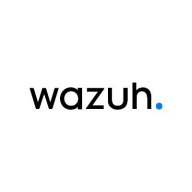

Microsoft Sentinel and Wazuh are leading solutions in cybersecurity. Microsoft Sentinel has an edge in pricing and customer support, but Wazuh outshines in feature versatility.
Features: Microsoft Sentinel users value integration with other Microsoft tools, its machine learning capabilities, and comprehensive threat detection. Wazuh users appreciate its open-source nature, extensive log data analysis, and diverse monitoring capabilities.
Room for Improvement: Microsoft Sentinel users suggest better data visualization, improved alert customization, and enhanced reporting tools. Wazuh users highlight the need for a more intuitive configuration, better documentation, and streamlined update processes.
Ease of Deployment and Customer Service: Microsoft Sentinel is praised for straightforward deployment and integrated support from Microsoft. Wazuh, while robust, has a steeper learning curve and relies on community support.
Pricing and ROI: Microsoft Sentinel offers competitive pricing and high ROI. Wazuh, being open-source, has minimal setup costs and provides high value over time.
If a customer is already using Microsoft’s ecosystem, the ROI can be positive due to seamless integration.
Microsoft Azure was not fitting for short-term cost savings but promised a better ROI over three to five years for medium to large companies.
Their solutions' integration simplifies resolving issues compared to those caused by third-party products.
Working with a Sentinel engineer helped us tune settings effectively.
When my team needs to escalate issues to Microsoft, especially for Microsoft Sentinel, the response is fast through their French entity.
There is no dedicated technical support for Wazuh as it is open source.
The documentation is good and provides clear instructions, though it's targeted at those with technical backgrounds.
We use the open-source version of Wazuh, which does not provide paid support.
Office 365 and Exchange are running on it, covering about 35,000 users efficiently.
Being a SaaS solution, the scalability of Microsoft Sentinel is robust.
As our organization uses Microsoft Azure and Defender, everything grows together, and we can integrate various features seamlessly.
It can accommodate thousands of endpoints on one instance, and multiple instances can run for different clients.
Scalability depends on the configuration and the infrastructure resources like compute and memory we allocate.
In the past two years, our team hasn't encountered any issues with the stability of Microsoft Sentinel from an operations perspective.
I need to be aware of deprecated connectors as they may disconnect, but the data continues to be sent with a need for quick adaptation.
So far, we have not experienced any issues, and it has been stable from the beginning.
The stability of Wazuh is largely dependent on maintenance.
The stability of Wazuh is strong, with no issues stemming from the solution itself.
Currently, we are happy to have a way in the middle with not so much cost, but it would be nice to have the ability to enhance the automation of workflows based on learned incidents.
There are complexities in calculating the right pricing tier for different customers, which makes it difficult for me as a consultant during upfront pricing.
We lack integration for Syslogs into Sentinel.
The integration modules are insufficiently developed, necessitating the creation of custom integration solutions using tools like Logstash and PubSub.
There is room for improvement by integrating more AI into Wazuh.
An issue I noticed is with tag values in certain rules not functioning properly.
Setting up the right cost model for customers is intricate, requiring careful consideration of various components and licensing tiers.
Microsoft Sentinel offers more capabilities than Bastion, with a more intuitive experience.
We already had the necessary licensing for Sentinel, so we didn't need to spend extra money.
Totaling around two lakh Indian rupees per month.
Since Wazuh is open source, the pricing for support could be applicable to medium-sized companies without much issue.
The ability of Microsoft Sentinel to correlate data from multiple sources enhances threat detection capabilities.
Custom workbooks are valuable. It is one of the crucial points in dealing with potential security threats in an automated way without requiring too much manpower.
The most valuable features for us include threat collection, threat detection, response, and the knowledge base for investigation.
The fact that it is open source means it is always being expanded, which is beneficial for customizing solutions for individual client requests.
Wazuh's most valuable features include file monitoring and compliance reporting, which do not require excessive costs.
We found the MITRE framework mapping and the agent enrollment service to be the most valuable features of Wazuh.


Microsoft Sentinel is a scalable, cloud-native, security information event management (SIEM) and security orchestration automated response (SOAR) solution that lets you see and stop threats before they cause harm. Microsoft Sentinel delivers intelligent security analytics and threat intelligence across the enterprise, providing a single solution for alert detection, threat visibility, proactive hunting, and threat response. Eliminate security infrastructure setup and maintenance, and elastically scale to meet your security needs—while reducing IT costs. With Microsoft Sentinel, you can:
- Collect data at cloud scale—across all users, devices, applications, and infrastructure, both on-premises and in multiple clouds
- Detect previously uncovered threats and minimize false positives using analytics and unparalleled threat intelligence from Microsoft
- Investigate threats with AI and hunt suspicious activities at scale, tapping into decades of cybersecurity work at Microsoft
- Respond to incidents rapidly with built-in orchestration and automation of common tasks
To learn more about our solution, ask questions, and share feedback, join our Microsoft Security, Compliance and Identity Community.
Wazuh is an enterprise-ready platform used for security monitoring. It is a free and open-source platform that is used for threat detection, incident response and compliance, and integrity monitoring. Wazuh is capable of protecting workloads across virtualized, on-premises, containerized, and cloud-based environments.
It consists of an endpoint security agent and a management server. Additionally, Wazuh is fully integrated with the Elastic Stack, allowing users the ability to navigate through security alerts via a data visualization tool.
Wazuh Capabilities
Some of Wazuh’s most notable capabilities include:
Wazuh Benefits
Some of the most valued benefits of Wazuh include:
Wazuh Offers
Reviews From Real Users
"It's very easy to integrate Wazuh with other environments, cloud applications, and on-prem applications. So, the advantage is that it's easy to implement and integrate with other solutions." - Robert C., IT Security Consultant at Microlan Kenya Limited
“The MITRE ATT&CK correlation is most valuable.” - Chief Information Security Officer at a financial services firm
We monitor all Security Information and Event Management (SIEM) reviews to prevent fraudulent reviews and keep review quality high. We do not post reviews by company employees or direct competitors. We validate each review for authenticity via cross-reference with LinkedIn, and personal follow-up with the reviewer when necessary.